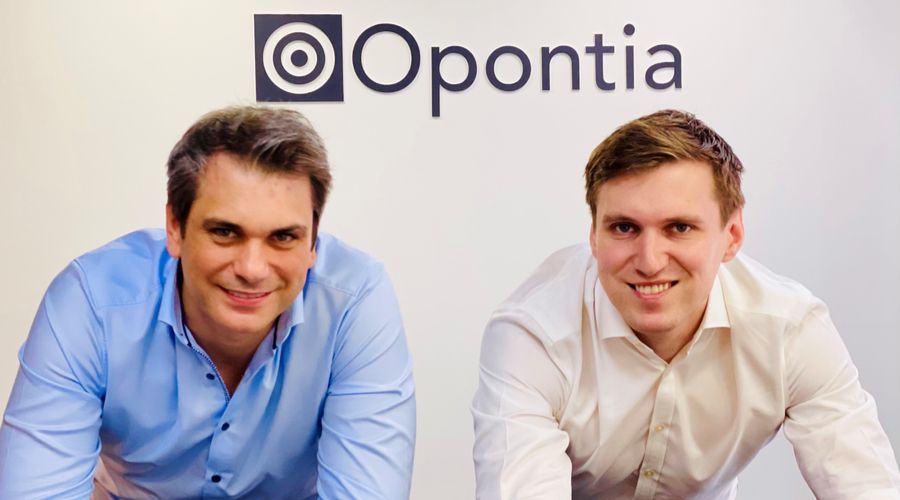Why the UAE’s Opontia is now focusing on Turkey

For centuries, Turkey, a country known for its rich culture influenced by both the East and West, has been a melting pot for trade and commerce.
In the digital age, the country happens to be home to one of a fast-growing e-commerce markets in Asia, growing at an annualised rate of 15 per cent. In 2021, e-commerce transactions accounted for 18 per cent of local trade revenues in Turkey, amounting to a total turnover of $16.3 billion.
As a flagbearer of the country's digital economy, e-commerce has also become a magnet for VC funding. The country is now home to a couple of decacorn startups, those worth $10 billion and above; Trendyol and Getir. Last year, Trendyol, the country’s first fashion marketplace, raised $1.5 billion at a post-funding valuation of $16.5 billion, while Getir, a quick commerce platform, raised $768 million Series A in March this year, valuing it at over $12 billion.
Global businesses are increasingly deliberating on Turkey for market expansion. Last year, shortly after its launch and $20 million fundraise, UAE-based Opontia, a company that focuses on acquiring e-commerce startups and helping them scale, launched in Turkey.
"It has one of the fastest growing economies in the world and a very young, tech-savvy population,” says Phillip Johnston, co-founder of Opontia. “Now, people seek lower prices for goods being sold over e-commerce channels. This means people are switching away from traditional channels towards e-commerce, which has become a very strong market for us domestically as well as an export market."
The growth in e-commerce is a direct result of the rise in its online population coupled with the increase in the use and popularity of fintech solutions. But as the country grapples with high inflation and weakening Lira, customer behaviour towards online shopping continues to change.
According to Yaman Alp Ungan, general manager of Turkey operations at Opontia, the macroeconomic situation in the country has impacted customer shopping habits, with most opting for cheaper products or buying instantly, out of fear of higher prices later.
E-commerce platforms are also scrambling to match up with the pace of changing consumer behaviour and tend to offer products at lower rates than traditional stores to attract custom.
“The key challenge in Turkey is the state of macroeconomics and rising inflation, but it has an interesting increasing effect on the consumption side, which we are seeing its impact on the Turkish brands,” says Ungan. “In spite of this currency depreciation, even in hard currency terms, USD terms, we have seen some steady and sustainable growth in the Turkish markets where these brands sell. It also has a different positive effect since Turkey is becoming a sourcing hub for the brands that we have in other countries.”
Brands selling their products via online channels are also adversely affected by rising raw materials costs and labor expenses. This financial situation has dented the ability of these brands to be export-ready businesses and scale their operations to other markets.
“What we observed is that companies are suffering from inflationary pressures resulting from rising costs of raw materials on one hand,” adds Ungan. “The human capital in Turkey is not the most structured to sell to hard currency countries, such as the European Union or KSA. We have very equitable brands, however, they have a problem expanding to the most [financially] lucrative markets.”
The GCC expansion
After acquiring local brands, Opontia works to solidify their market penetration in its core markets such as Saudi Arabia, the UAE and Poland. The market in the GCC maintains an appealing proposition to Turkish brands relative to other countries. Backed by higher oil prices, consumer spending in the GCC market has been less impacted by the global economic slowdown compared to neighbouring countries.
Since its launch in Turkey, Opontia has acquired five brands including beauty and cosmetics brands Luis Bien, Facelab and Juvenile; pet care startup; BioFeline, and Beauty Pillow, which offers customised pillows that help minimise wrinkles.
Earlier this month, the three beauty brands exhibited at the Dubai Beauty Week, as part of a planned expansion into the country and the wider GCC. Ungan further explains that there is pumped-up demand for Turkish brands working on specific verticals such as cosmetics and beauty.
"Cosmetics along with pet care supplements, home textiles and toys and baby products are among the most popular segments in Turkey. Cosmetics is a sought-after segment in the GCC, especially in KSA and the UAE. This has been further strengthened by the recent rapprochement between KSA and Turkey," he adds.


